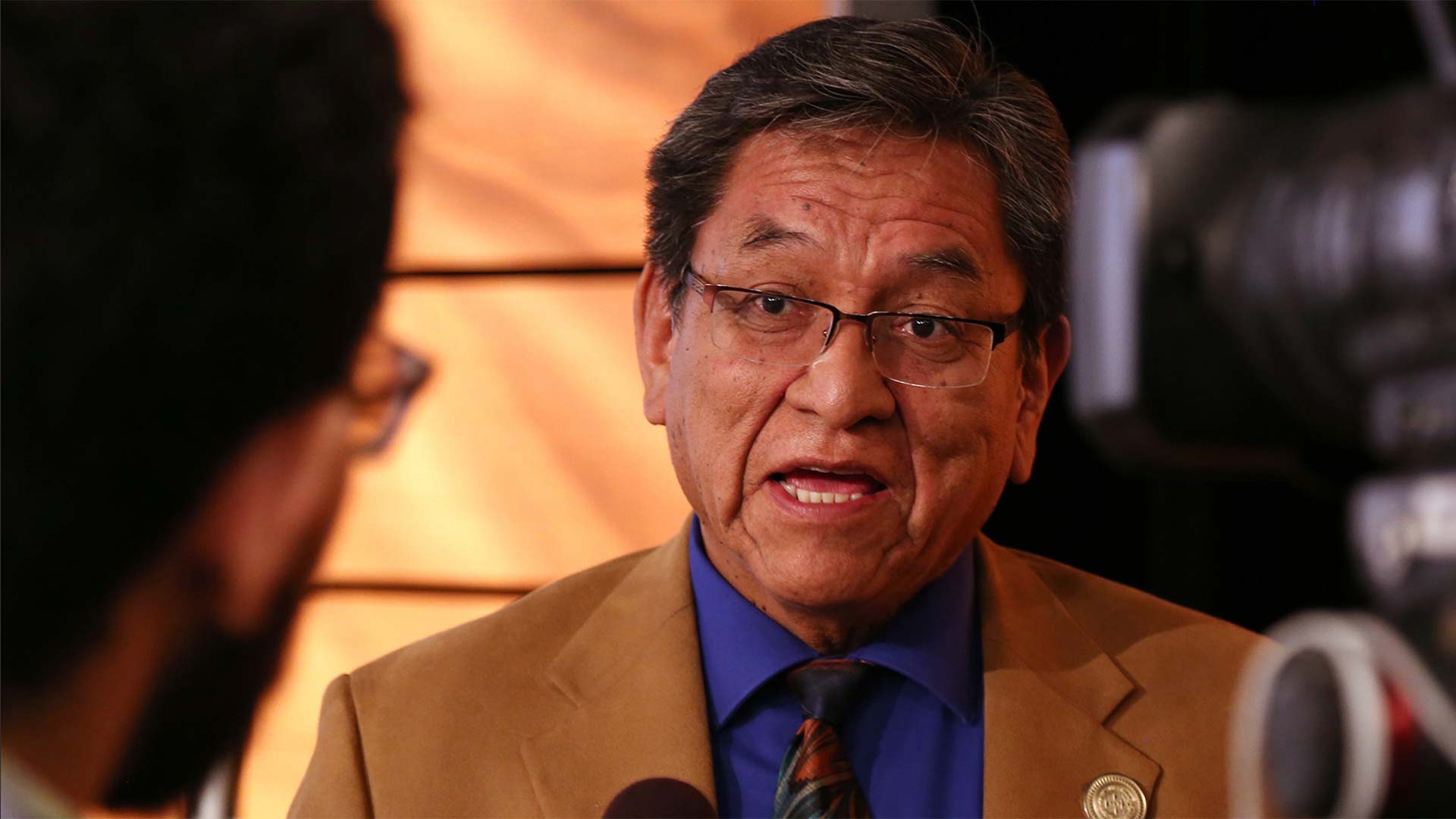 Navajo Nation President Russell Begaye, in a photo from a Feb. 5, 2017 Navajo Nation press release.
Navajo Nation President Russell Begaye, in a photo from a Feb. 5, 2017 Navajo Nation press release.
If a dirt road isn't maintained during a snowstorm, a couple things can happen. The snow can melt and turn the road to mud, or the snow piles up. Either way, you're stuck. Many Navajo are without running water and electricity, so they have to haul water to drink and wood to stay warm.
Navajo Nation Department of Transportation spokesman Carl Slater said the Bureau of Indian Affairs typically helps the tribe maintain 1,600 miles of paved roads and almost 6,000 miles of dirt roads. But he said the federal agency isn't working at full capacity because of the shutdown.
"Hauling water is an issue," Slater said. "There's also elderly folks. Maybe they're a dialysis patient, maybe they need to go get radiation therapy, maybe they just need to go get their diabetes medication. All of this is hindered when they are not able to make it to the main road from their dirt road."
And Navajo Nation President Russell Begaye said the shutdown isn't just affecting their roads. It's also a problem for food distribution programs, for federally-funded construction projects and for the Indian Health Service. Clinics are still operating but staff has been scaled back.
"If this shutdown continues, we will be hurting because of our reliance on federal funds, which we gain through our Treaty of 1868," Begaye said.
Tribes gave up their land, their natural resources, their water rights in exchange for education, health and economic development funds.


By submitting your comments, you hereby give AZPM the right to post your comments and potentially use them in any other form of media operated by this institution.